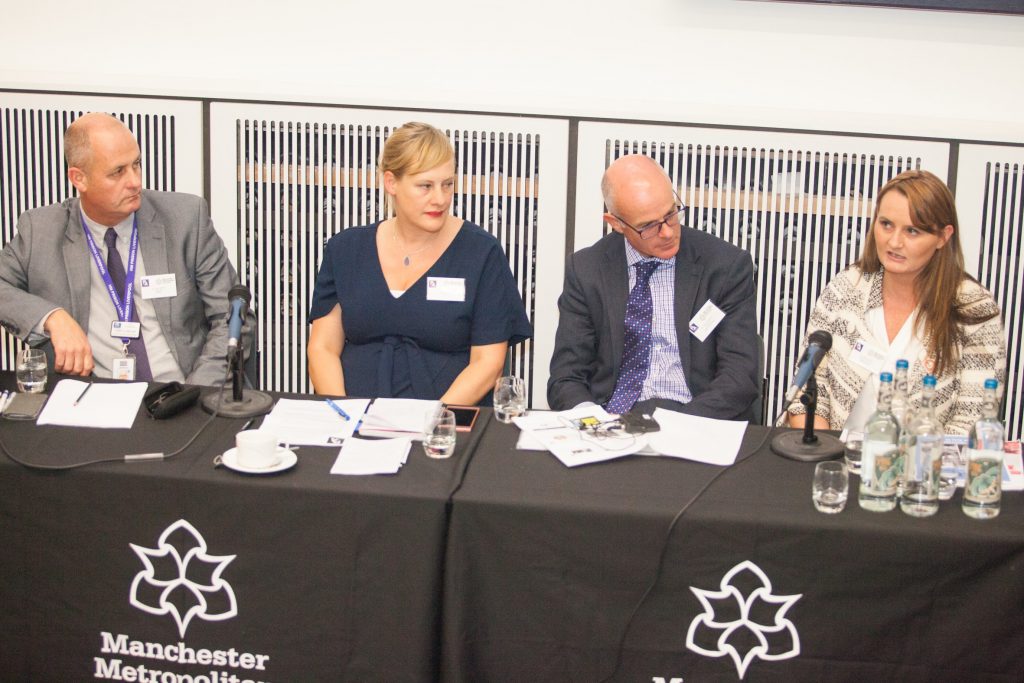

Francesca Cooney joined PET as Head of Policy in September. Here she tells us about the challenges facing prison education and her priorities over the coming months.
Let’s start with a whistle-stop tour of your career to date.
I started my career as a resettlement worker for women leaving prison then went on to working in advice centres including Citizens Advice. After that I joined Prison Reform Trust as an advice worker, then started managing their advice service. Policy work was also part of my role there and we focussed on a range of issues – from IPP sentences to foreign national prisoners. By this point I’d spent 15 years listening to prisoners, experience that put me in good stead for my next position as a prison inspector at HM Inspectorate of Prisons (HMIP) where I worked for nearly three years.
Tell us about your role at PET – what do you see as your priorities over the next few months?
I really enjoyed inspecting, but I was drawn to the position at PET as I wanted to concentrate on policy and oversee long-term projects in the criminal justice system.
As PET’s Head of Policy, one of my priorities has to be monitoring the new education contracts and funding arrangements and trying to get the message out to policymakers that the resources need to be adequate and the commissioning needs to be effective.
There are going to be a few months of upheaval while the new systems and services come into place. For prisons that are already struggling to provide services this might mean they get more resources and the services improve, or it could mean that the situation worsens. It’s part of my role to monitor this.
Another key priority is to track HMIP, Ofsted, Estyn and Independent Monitoring Board (IMB) reports to see what’s happening with prison learning across England and Wales, good and bad. One of the messages that I’d like to get across is how much a regime can impact on education.
Has anything you’ve learnt so far about prison education surprised you?
I’m still shocked that some people in prison can work really hard on their distance learning course, study and revise and then, because of administrative and regime reasons, aren’t able to sit their exams. We’re going to look at prisons that have got this right and work out how we can promote best practice.

Chairing the ‘Perspectives from prison governors’ panel at the PLA Conference 2018
How important will collaborating with other charities be in your work?
I’m excited about having the opportunity to work with other organisations pressing for change. We provide the secretariat of the Prisoner Learning Alliance (PLA) and, as Head of Policy, I’ll be part of the steering committee. The PLA is all about collaborating and using a collective voice to make policy change and improve practice. It means we can come at prison policy from different angles and make improvements by working separately and together.
What are the biggest challenges facing prison education?
Following the PLA conference in September, the Alliance’s members gave us a clear steer that they’d like us to campaign for access to digital technology across the whole prison estate. Currently digital provision is really patchy and there’s not an overall strategy or the resources to support the rollout.
This has to be a priority for HMPPS. If prison learners are going to be employable and develop basic life skills, they will need technology skills.
The PLA had an important role in shaping Dame Sally Coates’ review of prison education in 2016. What part will PET play in ensuring these recommendations are followed through?
In May it will be three years since the publication of the Coates report. I think that’s a good time to publish a review of the impact of her report and access what progress there has been on her recommendations. We’ll take a look at whether individual learning plans are working; whether library and careers advice services are up and running properly; and how much priority education is being given in prisons today. Watch this space!
It’s important to ensure that the policy work you’re doing is relevant and you can’t do that unless you’re continuously talking to people with lived experience.
Following this year’s announcement by UCAS to ban the box, there seems to be real momentum behind opening up universities to people with convictions. What are your plans for keeping this up?
It’s important to remember that while UCAS have taken the important and welcome step of banning the box, this hasn’t come into place across all universities. Our Academic Networks Officer Rosie is doing a brilliant job pushing this forward: next month we’re holding an event for university outreach and widening participation teams to share good practice. It will also be a good opportunity to encourage universities to review their admissions policies and processes. Through the PUPIL and PLAN networks, we want to work with universities and colleges to open up education to people with convictions.
Tell us about the role people with lived experience can play in making policy change.
It’s important to ensure that the policy work you’re doing is relevant and you can’t do that unless you’re continuously talking to people with lived experience. We regularly consult with our alumni Advisory Group on our work plans and they do a brilliant job of keeping us on track. Of course, it’s important to get the views of people currently serving too. Thanks to funding from Erasmus+, over the next few months we’ll be running participation workshops in prisons to help us shape our services, developed and facilitated by someone with lived experience.
Finally, why is this an exciting time to be working at PET?
The new funding structure means that we will be seeing different kinds of education provided in prisons. It’s a good opportunity for us to ensure that learners’ voices are heard, quality services are commissioned, and people learning in prison have proper opportunities to achieve success. The PLA is in a strong position with over 100 members and this gives us a fantastic network of expertise and experience to push the agenda forward.
Follow Francesca on Twitter here to find out more about our policy priorities and get the latest on prison education.
The PLA is open to new members – whether you work in prison, for a charity, in academia or simply have a passion for prison education. Join here.